- Home
- Roger Taylor
Dream Finder
Dream Finder Read online
Dream Finder
Roger Taylor
Mushroom eBooks
Copyright © 1991, Roger Taylor
Roger Taylor has asserted their right under the Copyright, Designs and Patents Act 1988, to be identified as the Author of this work.
First published in United Kingdom in 1991 by Headline Book Publishing.
This Edition published in 2002 by Mushroom eBooks, an imprint of Mushroom Publishing, Bath, BA1 4EB, United Kingdom
www.mushroom-ebooks.com
All rights reserved. No part of this publication may be reproduced in any form or by any means without the prior written permission of the publisher.
ISBN 1843191547
Contents
Prologue
Chapter 1
Chapter 2
Chapter 3
Chapter 4
Chapter 5
Chapter 6
Chapter 7
Chapter 8
Chapter 9
Chapter 10
Chapter 11
Chapter 12
Chapter 13
Chapter 14
Chapter 15
Chapter 16
Chapter 17
Chapter 18
Chapter 19
Chapter 20
Chapter 21
Chapter 22
Chapter 23
Chapter 24
Chapter 25
Chapter 26
Chapter 27
Chapter 28
Chapter 29
Chapter 30
Chapter 31
Chapter 32
Chapter 33
Chapter 34
Chapter 35
Chapter 36
Chapter 37
Chapter 38
Chapter 39
Chapter 40
Chapter 41
Chapter 42
Fantasy Books by Roger Taylor
Prologue
In the dark times, in the great movements of peoples, many looked upon the shores of the land and knew joy, thinking their long wanderings ended. But the darkness had spread even unto the people of the land, and they fell upon the newcomers and slew them, men and women and children, and rejoiced in the cruelty of the deed.
Then, in their long boats, came fugitives tempered by the heat of the many battles they had fought against the darkness. And though they sought only peace, still the peoples of the land slew them, and there was great conflict.
And, through the years, others came, and alliances were made, and the peoples of the land declined and were driven to the north and into the mountains. But in their final struggles, some among them, consumed with hatred and steeped in evil, sank yet deeper into the ways of darkness and drew upon the power which was in all things, and, using it corruptly, as a terrible magic, were themselves corrupted.
And for a while, they prevailed, bringing yet more horror to the land. But as the sword begat the shield, so did their wickedness show the way to their downfall, for others learned the way of the power and, learning it more truly, were not corrupted.
And in the end they prevailed, and peace came to the land.
And the victors turned to the future.
And the memory of the great conflicts that had brought them to the land, and even the battles they had fought there, faded into legend and myth, as too did the knowledge of the use of the power.
Yet it is ever there . . .
* * * *
Ivaroth Ungwyl reined his horse to a halt and stared around balefully. In every direction the view was the same – a flat, bleak plain spreading to a vague winter-misted horizon. It was covered with the harsh and stunted vegetation that alone could stand the bitter cold and the dry biting wind that blew there for most of the year and was blowing now.
In spring and summer he knew that the dun monotony would be transformed into vivid greens and yellows and a myriad other bright and subtle colours, as grasses and flowers appeared at the touch of the warmer sun and the light rains. Stags and bulls would fight for supremacy of their herds, old giving way to young, and birds and insects and countless small animals would emerge and hunt and mate and live their lives as if the cold, relentless touch of winter was gone never to return.
Ivaroth’s lip curled into a vicious sneer at this sunlit image and he looked west towards the grey disc of the sun hovering indifferently there. He spat towards it, as if in challenge, then wiped his chapped mouth roughly with his fur-gloved hand. It was a thoughtless act and both the pain and the realization of his carelessness made him grind his teeth and swear angrily.
His horse reared slightly in response and he jerked it back to stillness none too gently. Then, having at once assuaged his brief anger and demonstrated his dominion, he urged it forward again.
Sullenly, the horse turned north, the direction it had been travelling in since Ivaroth had captured it many days earlier.
To the south lay gentler terrain but, even without the dangers that lay there for him, Ivaroth’s mood was more in harmony with the surrounding bleakness and the impending winter.
‘Go,’ had been the decision of the elders. ‘Only respect for the spirit of your father and the testimony of your brother’s wife have saved you from immediate execution.’
Opposing ties of fear and anger had held Ivaroth in lowering stillness more effectively than any guards as this sentence had been passed on him. Part of him had wanted to sweep his captors aside and fall upon these dotards who saw fit to stand in judgement over him – him, the son of Ivaroth Dargwyl and true heir to his mantle as chieftain. But there were too many hostile eyes in the watching crowd that had encircled him. Too many hands waiting for the opportunity to launch spear or arrow at him and clear their own way, or the way of their kin, to the leadership of the tribe. And those that were his friends were too stunned and uncertain; rendered impotent by the sudden slaying of his older brother, albeit apparently in self-defence.
‘You are banished from the tribe. From dawn tomorrow your life is forfeit.’
Ivaroth hunched his shoulders against the wind as he recalled the words. Anger welled up inside him again, black and overwhelming. He would return. He would punish those who had brought this upon him as surely as he had always destroyed those who stood in his way. And he would rule as none had ruled before. He would be the greatest chieftain the tribe had ever known. It was his destiny. And he would lead not only his own tribe, but all the others. United into a great army they would set aside their own petty feuds and follow him down through the mountains to the rich fertile land to the south, razing its vaunted cities and putting its hated peoples to the sword.
It was the song that had filled his every waking dream for as long as he could recall and the long-rehearsed vision possessed him and carried him for a moment beyond the grim and perilous reality of his present position.
His destiny would not be gainsaid.
Banished without food and weapons, had it not, after all, been this destiny that had brought young Ketsath his way; returning triumphant from his lone ordeal of manhood in the wilderness in anticipation of being greeted a warrior and fit to join the society of men? Returning, well clad, mounted, and armed, and with food and water at his saddle. Returning to an early death at the hands of Ivaroth Ungwyl, like a god-sent sacrifice to serve a greater need.
Ivaroth smiled at the memory. He could have hidden the boy’s body but he had left it for the carrion. Let the tribe know that while he was beyond their reach, they were not beyond his. Let their hunters watch for the spear and the arrow from the shadows, until he would emerge once more to claim his true inheritance.
Yet, in truth, they were far from his reach now. A native caution had quietly prevailed over his wilder thoughts and brought him to this desolate region where any pursuing av
engers would be reluctant to follow and in any event, would be easily seen. And he was no callow youth. He had skills enough to survive here until . . . until what?
As always, Ivaroth’s euphoria faded and a bitter desperation began to seep into his thoughts. How could he fulfil his destiny here? What great deeds could he do? What great armies raise? Were all his dreams no more than some jest by the gods to taunt him into madness as he finished his days as a wandering hermit, ranting at the howling wind?
A sudden stinging gust of wind struck him as if in confirmation of this conclusion, bringing him back sharply to the present and making him bow his head and crouch low over the horse’s neck. As he did so, something caught his eye.
It was a figure in the distance; a small, but stark and ominous pillar in the bleak loneliness.
For a moment, fear tightened across Ivaroth’s stomach.
Had he been pursued and found? Was this the vanguard of Ketsath’s kin seeking revenge? Or his brother’s followers?
Surely he couldn’t have been so careless as to let them come so close unseen?
His mouth dried and his eyes flicked rapidly from side to side, seeking for signs of ambush. But nothing else was to be seen. Just the solitary figure walking towards him.
Yet there was an oddness about it. It moved strangely and seemed in some way to have a presence that was greater than that of a single man. Ivaroth scowled. As fear of avenging men faded he found a more primitive fear waiting. The ancient fear of the unknown; the ancient fear of strangers.
But, though treacherous, Ivaroth was no coward. And he had met no man yet who had defied him and not died or yielded for his pains. Involuntarily he shrugged his shoulders loose, eased his sword in its scabbard and checked his spear and his several knives; belt, sleeves, and, with a twitch of his calves, those in his boots. Then he turned the horse towards the distant figure and gently urged it forward.
For a while, it seemed that he came no nearer to the figure. Indeed, it was almost as if it were in some other place that must remain ever beyond reach. Ivaroth felt the unease of a strange dream rising within him.
He shook his head vigorously. You should’ve eaten before, he rationalized. You’re just light-headed through lack of food and too much travelling today.
Then the unease was gone and the figure was just a man walking hesitantly over the hard ground.
Ivaroth admitted to a twinge of both disappointment and distaste as he neared the man. The stranger was wearing a dirty and unkempt robe, the large cowl of which was pulled over his bowed head. Briefly he seemed to Ivaroth to be the personification of his own dark thoughts of a moment ago; a wandering hermit ranting at the howling wind.
He was not given to idle musing however, his thoughts being invariably pragmatic. It was a pity the man didn’t have a horse, but he looked old and feeble and he might have food or drink about him even though he carried no pack. Ivaroth soon concluded that a little effort now might well save him a day’s hunting. All that remained to be done was to check that the man had no companions nearby.
A friendly smile lit up Ivaroth’s face. To those who knew him closely, it was an indication that it was time to make a discreet leave-taking.
‘Greetings, traveller,’ he said jovially, halting his horse some way in front of the still-approaching figure.
The man stopped immediately and, without looking up, twisted his head slowly from side to side as if he had just heard some faint but familiar sound. There was a birdlike, almost serpentine, quality to the movement that set Ivaroth’s teeth on edge. Casually, he rested his hand on his sword hilt.
‘Greetings, traveller,’ he repeated, more loudly. ‘This is a harsh place to be wandering on foot. Where are you bound? Have you lost your camp?’
The head twisted again and the whole body craned forward slightly. Then an arm reached out and swept slowly from side to side as if seeking something in darkness. A long bony hand emerged from the ragged sleeve and, clawlike, groped at the air. But there was no reply.
Ivaroth’s eyes narrowed at this seeming defiance and he eased his horse forward until he was by the man.
‘I said, have you lost your camp?’ There was an unexpected harshness in his voice which surprised him. Had he heard it in someone else’s he would have called it fear.
His smile faded and was replaced by a scowl. He reached down to seize the cowl and expose the face of this impertinent stranger, but as he did so, the bony hand swung round and gripped his wrist.
Ivaroth’s fighting instincts registered several things simultaneously: the hand was the hand of an old man, and the stranger’s posture was that of an old man, but the movement had been effortless, swift and accurate, and the grip was full of the green strength of youth.
He did not, however, dwell on these contradictions, but instinctively tightened his legs about his horse for support so that he could tear his arm free. Even as he did so, however, he felt the grip controlling his balance.
With his free hand he drew a knife from his belt, twisting it so that he could slash the extended arm.
A sigh rose up from the stranger. Not a sigh of sorrow or despair, but one of . . . satisfaction . . . recognition even.
The sound made Ivaroth hesitate and he peered down at the cowled head, his face betraying both anger and curiosity. The head turned upwards to meet his inquiry and the cowl slipped back to reveal the face of the stranger.
It was the face of an old man, lean and haggard and with an unhealthy whiteness about it. But what made Ivaroth start was the sight of the ragged bandage bound about the man’s eyes.
Blind!
Thoughts flooded into Ivaroth’s mind. A blind man, here? So far from the normal range of any of the tribes. How? Most of the tribes either dispatched the blind or treated them as holy men. None that he knew would simply abandon them.
And the man did not have the look of a tribesman nor, for that matter, one of the southern city people.
He felt a brief touch of fear. It was said that across the great plains, far to the west, were other lands, strange mysterious lands full of great wonders, and peopled by tribes that were both beautiful and terrible.
Could this old man be . . .
The grip about his wrist tightened and he found himself being pulled down.
‘I have been asleep. Lost in my torment. And now I am found again.’ The old man’s mouth moved, but it seemed to Ivaroth that there was one sound in his head and another in his ears.
And there was a monstrous, insane delight in the voice. Ivaroth tightened his grip on his knife.
‘I am not forgotten after all. I am guided yet. Guided to this place . . . to this man.’
The old man turned his head away from Ivaroth and took in a deep breath. He was like some predatory animal catching the scent of its prey and knowing that only patience was needed now before he would feed.
‘Guided to this place so rich in the ancient power.’ The bandaged eyes turned back to Ivaroth. ‘And to you.’
A primitive terror filled Ivaroth at the recognition alive in the old man’s face. His knife hand would not move.
‘I don’t know you, blind man,’ he blustered, his voice shaking. ‘But I’ll give you your length of this rich place for all eternity if you don’t release my hand.’
The old man chuckled. A disgusting, bubbling sound, full of great confidence and certainty. Then, with his free hand, he reached up slowly and pulled the bandage from his eyes. Ivaroth tried to look away, but his black-irised eyes were held by the stranger’s sightless gaze as if it were a blazing spear, passing right through him and impaling his very soul. The orbs were white and cloudy as if the sight had been bleached from them by too great a light, though, Ivaroth suddenly knew, it was because they had seen too terrible a truth.
‘There is blindness and blindness,’ said the stranger’s voice. ‘I see more than you will ever know, yet you will be my eyes and I shall be yours . . . Ivaroth Ungwyl . . . fratricide, murderer of the young, and . . . chief
tain to be . . . chieftain of all the tribes.’
Chapter 1
The light from the doorway sent Antyr’s shadow leaping ahead into the swirling gloom of the dense fog that greeted him as he emerged from the inn.
He paused, an unsteady silhouette, at the top of the short flight of stone steps. Then he grimaced. He had lived in the Serenstad contentedly enough all his life, but these appalling fogs always reminded him of childhood holidays in the country. There, for all their cold dampness, the wintry mists had been grey and soft, but the fogs here were always tainted yellow with grime and smoke from the city’s innumerable forges and workshops. They made the roads and footways slimy and treacherous, they clung to clothes, making them damp and sulphurous, and they made every breath a chest-burning ordeal.
His dark reverie was interrupted by mounting cries of abuse from the noisy inn parlour at his back.
‘Go, if you’re going, man. You’re chilling us all,’ was their gist.
Without turning, Antyr waved a scornful dismissal to his erstwhile companions, then, seizing the heavy wrought-iron latch, he yanked the door shut. It was a heavy door, notorious for its stiffness, and its frequent noisy closing through the nights was the constant bane of the neighbouring sleepers. Now, however, its window-shaking slam was muffled by the clinging fog, and the image of a closing tomb came into Antyr’s mind as an eerie reverberation echoed back at him out of the gloom.
The darkness of this unexpected image was deepened by the sudden ceasing of the clatter from the inn, and the equally sudden vanishing of the warm yellow light that had thrown his long shadow so boldly out into the fog. For a moment he felt disorientated, as if he had only been in someone’s dream about the inn and his raucous friends and had wakened suddenly to find he had been sleep-walking.
It was an unsettling thought for a Dream Finder and involuntarily he reached back and briefly touched the familiar rough wooden door for reassurance. Then, more relieved than he cared to admit, he growled into the fog, and wrapped his cloak tight about himself.

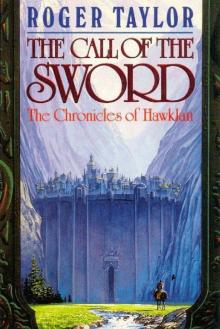 The call of the sword tcoh-1
The call of the sword tcoh-1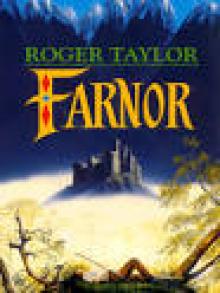 Farnor
Farnor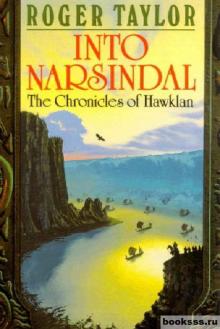 Into Narsindal
Into Narsindal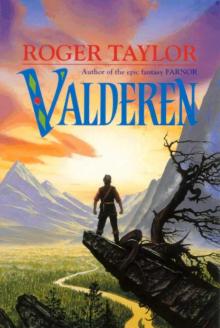 Valderen ft-2
Valderen ft-2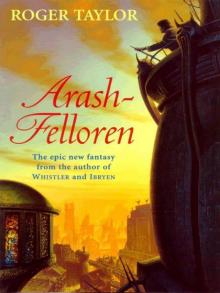 Arash-Felloren
Arash-Felloren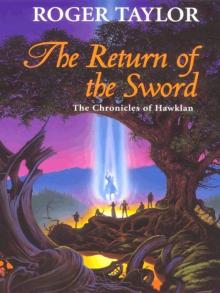 The Return of the Sword tcoh-5
The Return of the Sword tcoh-5![Ibryen [A sequel to the Chronicles of Hawklan] Read online](http://i1.bookreadfree.com/i1/03/26/ibryen_a_sequel_to_the_chronicles_of_hawklan_preview.jpg) Ibryen [A sequel to the Chronicles of Hawklan]
Ibryen [A sequel to the Chronicles of Hawklan]![The Call of the Sword [Book One of The Chronicles of Hawklan] Read online](http://i1.bookreadfree.com/i/03/24/the_call_of_the_sword_book_one_of_the_chronicles_of_hawklan_preview.jpg) The Call of the Sword [Book One of The Chronicles of Hawklan]
The Call of the Sword [Book One of The Chronicles of Hawklan]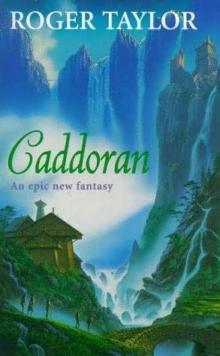 Caddoran
Caddoran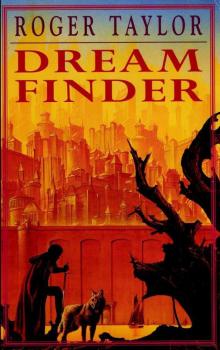 Dream Finder
Dream Finder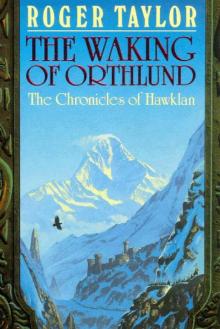 The Waking of Orthlund
The Waking of Orthlund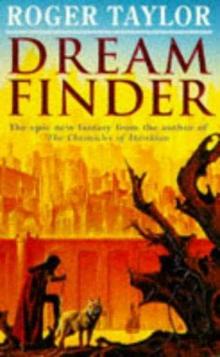 Dream Finder cohs-1
Dream Finder cohs-1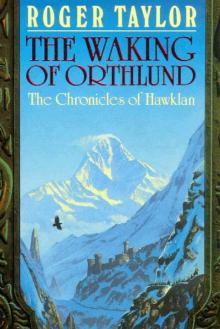 The waking of Orthlund tcoh-3
The waking of Orthlund tcoh-3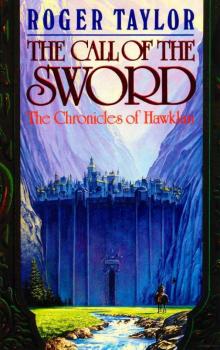 The Call of the Sword
The Call of the Sword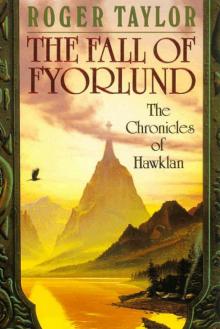 The fall of Fyorlund tcoh-2
The fall of Fyorlund tcoh-2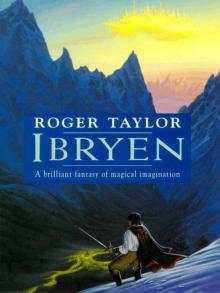 Ibryen
Ibryen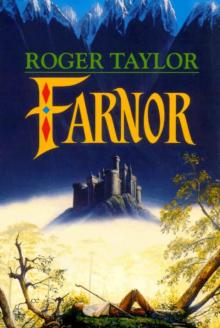 Farnor ft-1
Farnor ft-1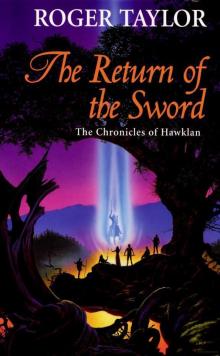 The Return of the Sword
The Return of the Sword![Into Narsindal [Book Four of The Chronicles of Hawklan] Read online](http://i1.bookreadfree.com/i2/04/06/into_narsindal_book_four_of_the_chronicles_of_hawklan_preview.jpg) Into Narsindal [Book Four of The Chronicles of Hawklan]
Into Narsindal [Book Four of The Chronicles of Hawklan]![Valderen [The Second Part of Farnor's Tale] Read online](http://i1.bookreadfree.com/i2/04/05/valderen_the_second_part_of_farnors_tale_preview.jpg) Valderen [The Second Part of Farnor's Tale]
Valderen [The Second Part of Farnor's Tale]![The Fall of Fyorlund [Book Two of The Chronicles of Hawklan] Read online](http://i1.bookreadfree.com/i2/04/08/the_fall_of_fyorlund_book_two_of_the_chronicles_of_hawklan_preview.jpg) The Fall of Fyorlund [Book Two of The Chronicles of Hawklan]
The Fall of Fyorlund [Book Two of The Chronicles of Hawklan]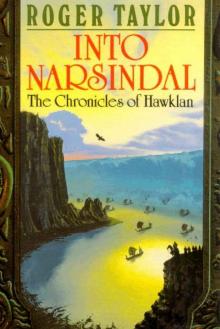 Into Narsindal tcoh-4
Into Narsindal tcoh-4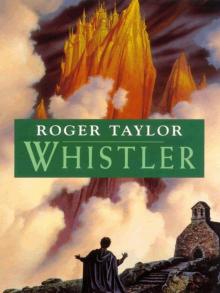 Whistler
Whistler![Whistler [A sequel to The Chronicles of Hawklan] Read online](http://i1.bookreadfree.com/i2/04/12/whistler_a_sequel_to_the_chronicles_of_hawklan_preview.jpg) Whistler [A sequel to The Chronicles of Hawklan]
Whistler [A sequel to The Chronicles of Hawklan]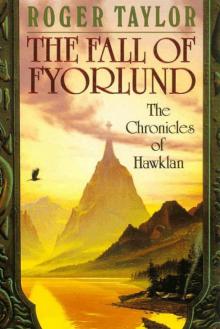 The Fall of Fyorlund
The Fall of Fyorlund![The Waking of Orthlund [Book Three of The Chronicles of Hawklan] Read online](http://i1.bookreadfree.com/i2/04/11/the_waking_of_orthlund_book_three_of_the_chronicles_of_hawklan_preview.jpg) The Waking of Orthlund [Book Three of The Chronicles of Hawklan]
The Waking of Orthlund [Book Three of The Chronicles of Hawklan]